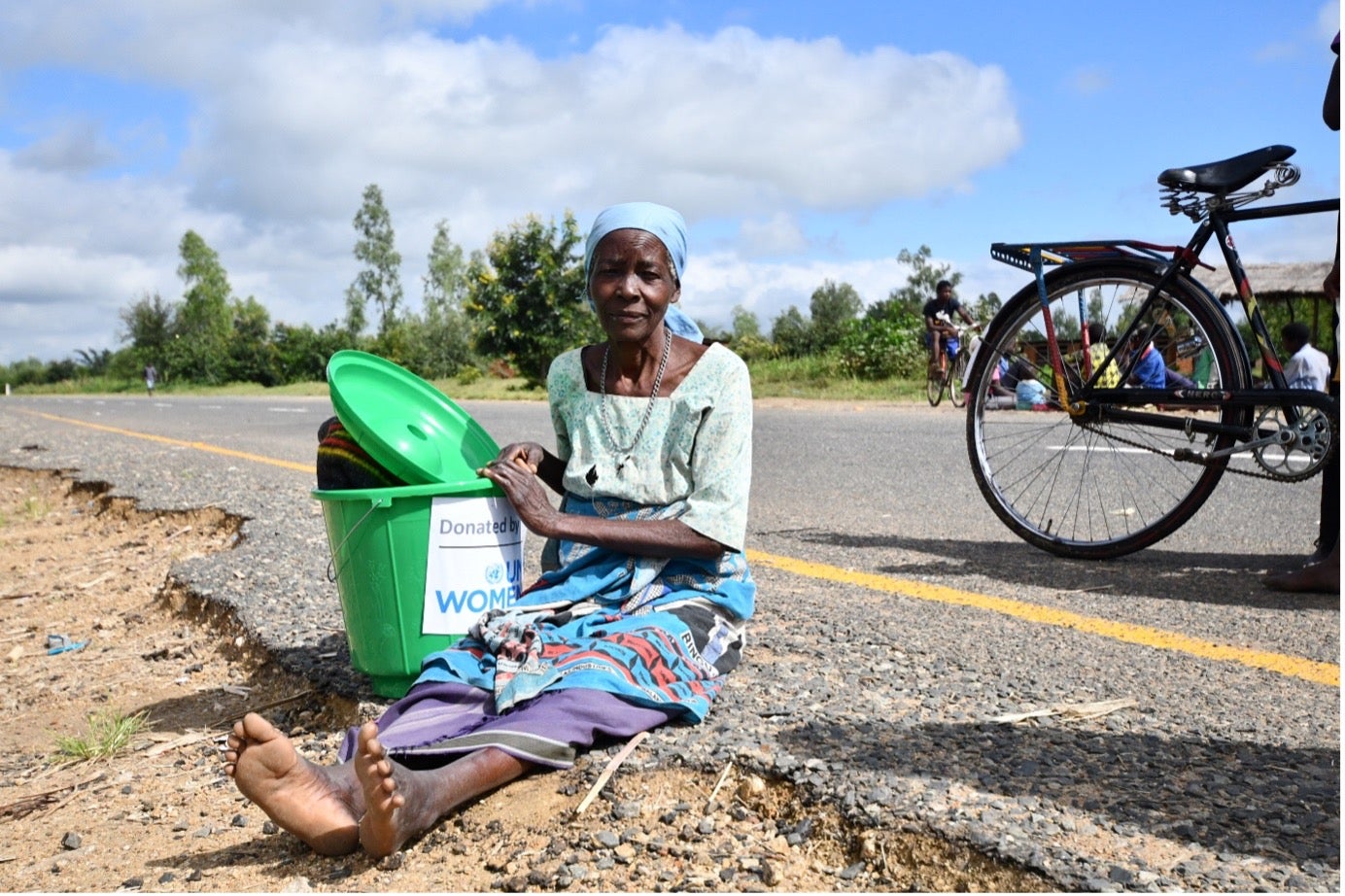From where I stand: “I feel safer here and my five grandchildren are safe with me”
Date:
Gogo Annie Mtcholo, 74, is one of 336,252 women displaced by Cyclone Freddy in March 2023. UN Women is donating much needed emergency items to families affected by the cyclone in flood-stricken areas in southern Malawi.

Faith Mvula/UN Women
“The rains started in the early hours of Sunday morning; it was raining so heavily I was afraid to leave my house. It just kept on raining and raining, throughout the day and into Monday. Houses in my village started to collapse on Tuesday. I recalled similar occurrences happening in 1992, that’s when I told my children and grandchildren that we had to run away. The village protection committee ran around our village warning us to go to the camp which is on higher ground. I was lucky enough to find shelter in one of the school blocks at the camp. The next day we went back to our village, but there was nothing there, all our houses are gone. I’ve been at the camp for eleven days now, we received maize flour from UN Women to eat two days after I arrived at this camp because no one could reach us as the camp was surrounded by water, this is the third time we are receiving food. I am afraid of catching malaria since we don’t have mosquito nets, but I feel safer here because it is on higher ground and my five grandchildren are safe with me. Thank to UN Women, we also have much-needed blankets and hygiene products. I urge organizations like UN Women to continue helping people like me”
Annie Mtcholo is staying at Ming’ambo camp in flood stricken Phalombe district. UN Women delivered relief supplies including blankets, solar lamps, food, and hygiene kits to 1,587 households as part of its response to Cyclone Freddy. In March 2023, Tropical Cyclone Freddy caused flooding and mudslides, disrupting service provision,resulting in deaths and injuries, damaging infrastructure and displacing 336,252 women and girls in 15 districts in the southern region of Malawi. (*data as of 27 March,2023).